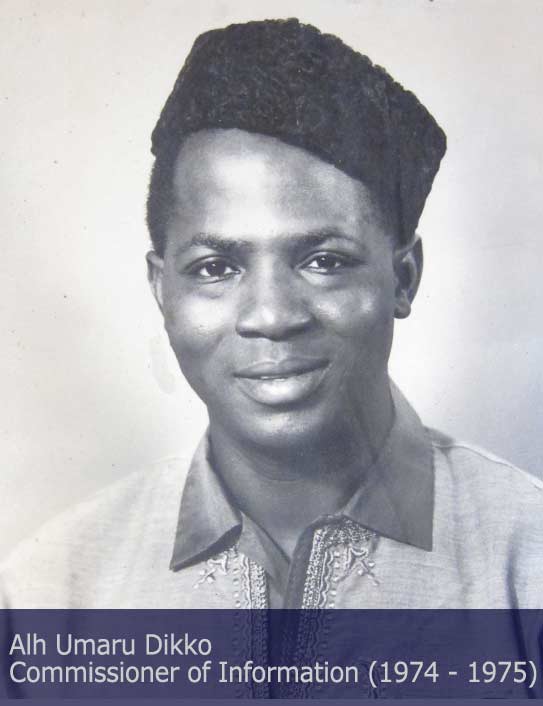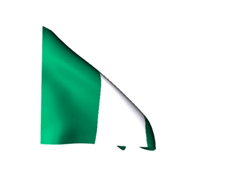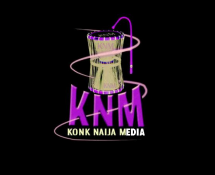The Lights Go Down on Nigerian 2nd Republic Statesman Haji Umaru Dikko
konknaijagirl | On 02, Jul 2014
Former minister of Transportation during the Second Republic, leading figure in the National Party of Nigeria, NPN, Special Political Adviser to former President Shehu Shagari, head of the presidential task force on rice during Shehu Shagari`s administration and current Chairman of the Disciplinary Committee of the ruling Nigerian political party Peoples Democratic Party. Alhaji, Dr. Umaru Dikko, has died after a protracted illness at the age of 78.
In Zaria, yesterday his sibling Dr. Bello Dikko, and another family member in London, confirmed he had been unwell for some time and had suffered three strokes in a row and succumbed to the onslaught of the successive strokes in the early hours of Tuesday at a London Hospital
Born December 31, 1936. He was the third son of Alhaji Abdurrahman Dikko, the Turaki Babba of Zazzau and 6th direct descendant of the famous Islamic scholar and reformer, Shehu Usman Dan Fodio, the founder of the Usumaniya Dynasty popularly known as the Sokoto Caliphate .
He started his education at Kaduna Elementary School in 1946 proceeding to Zaria Middle School (now Alhudahuda College Zaria) going on to take the entrance examination to the famous Barewa College, where he spent six years and passed the Cambridge School Certificate Grade One in 1954. His education continued at the Nigerian College of Arts, Science and Technology (now ABU Zaria) with the intention of becoming an engineer. But in1958, Umaru Dikko changed his mind and joined the BBC African Hausa Service.
Whilst working at the BBC he returned to higher education and graduated with an Honors degree in Mathematics, subsequently repatriating to Nigeria in 1965.
His employment career in Nigeria took him to NNIL an investment firm which was jointly owned by the Northern Nigeria Government and Commonwealth Development Corporation and he went into politics in 1967, when he was appointed a commissioner in the then North Central State of Nigeria (now Kaduna State). He was also appointed secretary of the committee set-up by General Hassan Katsina to unite Northerners after the 1966 coup.
Dikko was an influential minister under the administration of President Shehu Shagari in the early 1980s. When the military ousted the regime in a coup d’état in 1983, Umaru Dikko escaped the likelihood of being executed or held to task and took up residence in excile the UK. Following the coup , the incumbent military regime, led by then Self Appointed Millitary Head of State, Muhammadu Buhari, accused Dikko of corruption and official graft and deviced a plot to kidnap him from the streets of London and forcefully return him to Nigeria.
In 1984, a plot was hatched where Dikko was kidnapped aganst his will by a eam of Israeli and Nigerian intelligence officers, drugged and put into a wooden crate to be smuggled back to Nigeria in an unconscious state as diplomatic mail. The UK police later arrested his abductors as they tried to ship him through an airport in London.
In 2006 Umaru Dikko was one of the forefront former Old NPN members who emerged within the new PDP under the acronymn ‘The Third Force’ who declared an objective of ”pulling the party back from the precipice”. in a quest for a new generation of Nigerians who will play politics by the rules others included Alhaji Isyaku Ibrahim, former Transport Minister in the Second Republic, Alhaji Umaru Dikko, and Chief Sunday Awoniyi,
His health had been in decline for some time and this was somewhat evident when he accepted and took up position as the Chairman of the Peoples Democratic Party disciplinary committee set up in late 2013 by PDP’s Bamanga Tukur, a job he accepted despite his ailing health.
Dignitaries including President Goodluck Jonathan, Northern States Governors Form, NSGF, Arewa Consultative Forum, ACF, and former Vice president Atiku Abubakar yesterday voiced their condolences at the news of the demise of the second republic minister.
In a statement issued by his Special Adviser on Media and Publicity, Dr. Reuben Abati, President GE Jonathan expressed condolences to the family, friends and political associates of the former statesman.
The president said he firmly believed that Dikko’s significant contributions, especially his lifelong advocacy for stronger political parties, greater discipline within political parties and the supremacy of political parties have assured him of a place in the annals of Nigeria’s political development.
HISTORY
The Dikko Affair was a joint Nigerian-Israeli attempt to kidnap Umaru Dikko, a former Nigerian civilian government minister living in the United Kingdom, in 1984, and secretly transport him back to Nigeria in a diplomatic bag. The kidnapping took place, but the transportation was unsuccessful. After it was foiled, the political fallout seriously damaged relations between Nigeria and the United Kingdom for years.
Dikko was of ineterest to the Army regime who executed a military coup because he was an influential Transport Minister in the civilian administration of President Shehu Shagari who was also his brother-in-law. In 1983.
When the Nigerian government was overthrown by a team of soldiers headed by Major-General Muhammadu Buhari, and a new military government led by Buhari was established. On his second day in power, Buhari issued a list of former government officials accused of a variety of crimes. Dikko, who topped the list, was accused of embezzling several million dollars in oil profits from the national treasury. Despite strenuous efforts to locate him, Dikko appeared to have vanished without trace. In actual fact, Dikko escaped to the UK and settled in London moving in high society circles and became a vocal critic of the regime from his location in exile.
Though Israel, at the time, did not have formal diplomatic relations with Nigeria, there were less visible ties between the two nations. In particular, Nigeria was an important source of oil for Israel, and Israel was a significant supplier of arms to Nigeria. The Israeli national intelligence agency Mossad was recruited to locate and bring Dikko back to Nigeria to stand trial.
The kidnapping
Mossad sources across Europe were mobilised, but all failed to locate any trace of Dikko. However, Mossad Director-General Nahum Admoni decided that Dikko was probably in London, which had become a haven for Nigerian exiles critical of the new regime. Mossad katsas, accompanied by Nigerian security service agents led by ex-Nigerian Army Major Mohammed Yusufu, traveled to London. The Nigerian team rented an apartment on Cromwell Road and posed as refugees from the new regime. The Mossad agents rented rooms in hotels catering to tourists from Africa, and posed as anti-apartheid activists. Working separately, the two teams moved among the Nigerian expat community in London, gradually narrowing their search to West London, to the area around Hyde Park, where many wealthy Nigerian exiles lived. They combed the electoral registers freely available in the area’s town halls, but found no trace of Dikko.
On 30 June 1984, a Mossad agent driving down Queensway spotted Dikko and tailed Dikko on foot to his house in Porchester Terrace. Admoni was immediately informed, and ordered surveillance on the house.
From then on, house was constantly watched, while the Nigerians, using their London embassy as a base, prepared a kidnapping operation. Meanwhile, the Mossad recruited Dr. Levi-Arie Shapiro, an Israeli doctor who was a consultant anesthetist and director of the intensive care unit at HaSharon Hospital, to fly to London and participate in the operation. Shapiro’s job would be to drug Dikko, and insert an endotracheal tube to keep him from choking on his own vomit whilst being transported in a crate.
Late in the evening of 3 July 1984, a Nigeria Airways Boeing 707 arrived at Stansted Airport from Lagos. The aircraft had arrived empty, and the pilot notified the authorities that the plane had arrived to pick up diplomatic baggage from the Nigerian embassy. On board were several Nigerian security guards, who openly identified themselves as such and stated that they were there to protect the baggage.
Their presence was reported to Scotland Yard’s Special Branch. The following day, Dikko was kidnapped in front of his home while he was out for a walk and taken away in a van driven by Yusufu. He was then drugged into unconsciousness by Shapiro.[4] However, the abduction was witnessed by Dikko’s secretary, Elizabeth Hayes, who quickly notified the authorities.[4][5]
Dikko and Shapiro were placed in one crate (dimensions 1.2 x 1.2 x 1.5 meters), while Mossad agents Alexander Barak and Felix Abithol occupied a second.However, proper documentation that would have ensured that the cargo could not be inspected was not provided. The crates were not labeled as diplomatic bags, as required by Article 27(4) of the 1961 Vienna Convention on Diplomatic Relations.
As a result, customs officials who had received an all-points bulletin alerting them to the kidnapping while the crates were being processed at the airport were able to open the crates without violating the convention and foil the kidnapping. Dikko was taken to a hospital; he was uninjured.
Seventeen men were arreste four were convicted and sentenced to prison terms of 10 to 14 years: Shapiro, Barak, Abithol, and Yusufu. All four were released after serving between six and eight and a half years, and were quietly deported. In retaliation, two British engineers in Nigeria were arrested and given fourteen-year prison sentences.
Repercussions
The Nigerian and Israeli governments never admitted any connection to the incident. Nonetheless, the British government immediately expelled two members of the Nigerian High Commission in London, including the High Commissioner. Diplomatic relations with Nigeria were broken off for two years. The CEO of Nigeria Airways was at one point almost arrested by British police. In the aftermath of the affair, Nigeria filed a formal extradition request for Dikko, but it was refused. The Nigerian governments war against the previous government’s corruption was also weakened, as the British governments also rejected Nigerian requests to extradite other politicians wanted in Nigeria on corruption charges and living in exile in Britain.
Dikko was eventually invited to return to Nigeria. and he later accepted the invitation and took up an advisory and background role in politicss supporting several key players on the Nigerian political scene until his death.











